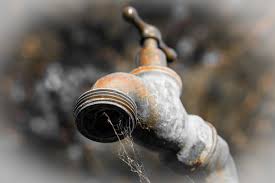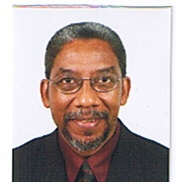 The imposition of what the English quaintly labelled a ‘hose pipe ban’ back in the 80s and 90s is not new or novel to our country. For decades our WASA and Water Resources Agency under the policy direction of numerous political administrations have failed to develop, far less implement, an effective water management policy and programme for this little 2-island Republic. With only 2 seasons – wet and dry – not introduced or having a third inserted by climate change, it is as it has been. Yet when it rains, we get floods only growing more massive and destructive and when the rains are over, we never have enough water stored to take us through the dry season. Not even hurricanes, except for Flora, add complication to our simple 2-part weather pattern, so far at least. How is his possible in a land which has been subject of a multitude of hydrological studies and visits from everyone from the below-sea-level Netherlands to the bone-dry Israel with a few other nationalities thrown in? Not even the handing over of the management of WASA to a local ‘dream team’ then multinational Severn Trent from England have rendered the failure of WASA and the WRA to manage our water resources. Not forgetting the change of location of the South West Water Project devised under the first Manning regime to a desalination water project for Point Lisas under the first Panday regime which replace Manning’s. Tobago, which is smaller than Trinidad has fared no better under the same WASA and WRA and political administrations plus the THA. Neither the water management nor adequate sewerage facilities are present on that island. Having served as a Commissioner on the Board of WASA in 1995-97 and PSA President straddling the Manning and Panday administrations, I had the opportunity of opposing the Severn Trent adventure. A joint a management-and-all unions exercise produced a development plan for WASA, minus the huge debt that Severn Trent demanded to achieve less outputs than the in-house plan projected. The PSA persuaded the management to cut out the private middleman in purchasing alum for water treatment. Treatment costs nosedived until Government restored the monopoly to the middleman. That Board took initiatives in metering commercial connections, reactivating storage reservoirs along the Northern range, rehabilitation of dilapidated sewerage treatment plants on housing developments, main replacement, new wells in South Trinidad, customer database and revenue collection improvement. Severn Trent came and after collecting $50M US left this country no better off in its water supply or management situation. The same 50%-unaccounted-for water blamed on leaking old pipeline infrastructure of the 90s appears to persist in 2019. The desalination plant was introduced largely to guarantee the supply of potable for the plants at Point Lisas to which most of the Caroni-Arena dam production is already allocated. PSA first proposed the introduction of a waste-water treatment plant to utilise 20 million gallons from Port of Spain and 10 million gallons from San Fernando daily to supply industrial water for cooling plants instead of drinking water. The object was to free up 30 million gallons of potable water every day for domestic use. Severn Trent opposed the idea, the UNC and greedy contractors sabotaged it and the PNM is again rejecting it, even though it could mean the difference between disaster and well-being in any dry season. There is no new major surface water source in Trinidad since Caroni-Arena and the desalination plant is subject to shutdowns more frequently than similar plants in Barbados and Curacao, suggesting that there may be design or other deficiency. And so, we come to the latest harsh dry season and hose pipe ban. To add insult to injury this time, a few farmers in a decimated Aranjuez food basket had their pumps confiscated apparently to enforce a mass Abstraction Licence campaign. Commercial car washes are free to wash any amount of vehicles while homeowners in, gated and ungated communities, cannot wash theirs at home. Meanwhile, all industrial plants are guaranteed a supply. As on all previous occasions, the harsh dry season is not to affect those who use huge amounts water to make profits while those who need it for simply living are subject to frequently changing water schedules with as little as 2 or so out of 14 days supply. The current Public Utility Minister has pronounced that what is needed is:
The issues have been diagnosed over and over. But, the Right of the population to a reliable source of water and sanitation facilities to protect their health has not become a matter of guarantee for the politicians of this small island nation. Like every other Right, the citizens must demand its guarantee and cannot sit back waiting in hope but must actively demand it. Clyde Weatherhead A Citizen Fighting for a Decent Life for All Citizens 22 May 2019 Comments are closed.
|
AuthorI am a appalled at the loss of the simple skills of discussing ideas and sharing Opinions to DEEPEN ANALYSIS and UNDERSTAND DEVELOPMENTS to ARRIVE AT SOLUTIONS. Archives
April 2024
Categories |

About Clyde Weatherhead
Clyde has been involved in public life as a political activist, a trade unionist, Lawyer, Teacher and Author |
Connect With Clyde
Write to Clyde on Facebook Visit Clyde's Author Page on Amazon Go To Discussion on Facebook For Employment Relations Issues |

 RSS Feed
RSS Feed